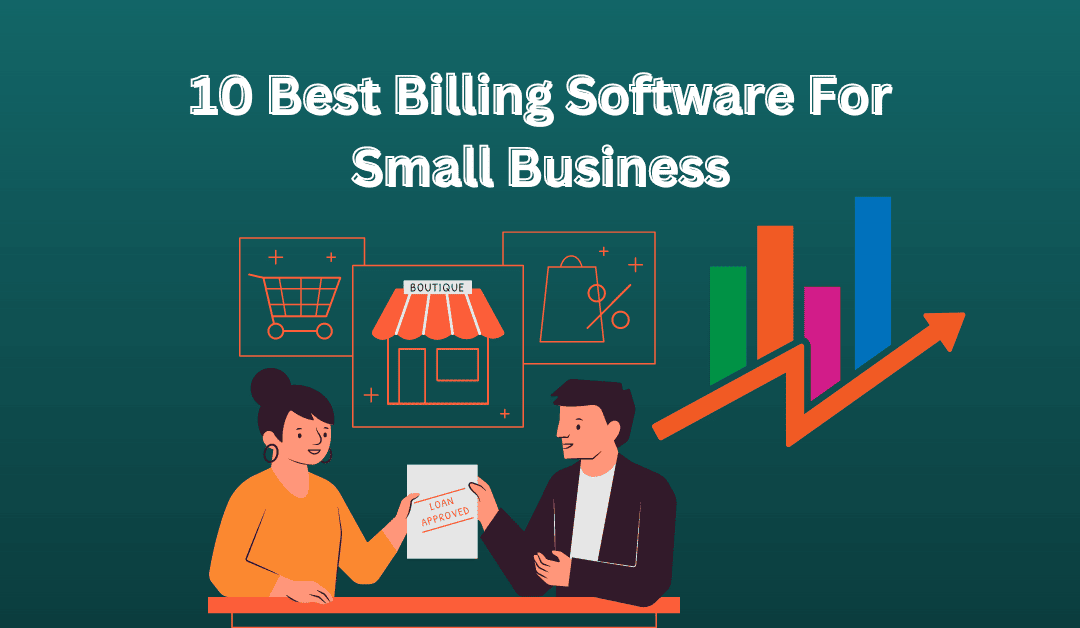“Best Billing Software for Small Business” describes a software program created mainly to address small companies’ billing and invoicing requirements. The finest billing software for small businesses should automate processes like invoice production, transaction tracking, and financial statement generation to expedite the billing process.
It may be challenging to manage the financial side of a small business, particularly when it comes to billing and invoicing. Introducing numerous billing software solutions that simplify the billing process and increase productivity among small businesses is a fortunate result of technical improvements.
The correct billing software can streamline your business’s financial processes and keep you organized by automating chores like invoicing, monitoring payments, and providing financial reports.
This post looks at some of small businesses’ top billing software alternatives. The success of your business may be significantly impacted by choosing the appropriate billing software, regardless of whether you are a freelancer, a startup, or a small organization. We’ll go through each piece of software’s primary advantages and features so you can decide which is best for your particular business needs.
It’s essential to take into account features like
- Cost-effectiveness
- Scalability
- Interconnections
- Customization possibilities
- Simplicity of use when selecting the best billing software.
By assessing these factors, you may choose the billing software that best suits your requirements, which will facilitate you preserve time, misjudge errors, and enhance your overall financial management.
Join us as we examine the best billing software options for small businesses and dig into the world of billing software. Learn how these technologies may transform your billing procedures, improve client happiness, and support the expansion and success of your company.
Top 3 Best Billing Software For Small Business
Moreover, our three best Billing Software for Small Businesses with unique features is
QuickBooks: QuickBooks is a well-known and well-liked billing program created for small enterprises. Invoicing, monitoring expenses, financial reporting, and connectivity with other accounting systems are just a few of its functions.
FreshBooks: FreshBooks is a cloud-based billing and accounting system for small enterprises and independent contractors. It offers functions including time tracking, expenditure management, client management, and billing. Users with little experience with accounting may efficiently utilize FreshBooks thanks to its simple user interface.
Zoho Invoice: Zoho Invoice is a complete billing software program specially created for small enterprises. It has functions including a client portal, time tracking, expenditure management, recurring billing, and online invoicing.
The “best” Billing Software For Small Business might differ depending on your company’s requirements and tastes, so it’s crucial to remember this. Before choosing, conducting an in-depth study and carefully weighing your alternatives in light of your requirements is advised.
List of 10 best Billing Software for Small Business
Preparing, delivering, and maintaining bills is streamlined and automated by billing software, commonly called invoicing software. It is a crucial tool for organizations because it streamlines financial processes, increases preciseness, and saves time.
Businesses may quickly produce invoices with a professional appearance thanks to billing software. Typically, it provides customizable invoice templates, the possibility to include corporate logos and branding, and choices for itemizing goods and services and their costs.
Businesses may automate recurring bills for dependable clients using billing software, saving time on manual invoice production. This functionality is beneficial for organizations that provide continuous or subscription-based services. Numerous billing software programs interface with payment gateways, enabling clients to send payments online straight from the invoice.
Businesses can record and categorize costs using expense tracking tools frequently included in the billing software. This aids in the calculation of taxes, the analysis of business costs, and correct financial reporting. The majority of billing software offers analytics and reporting features to assist firms in gaining an understanding of their financial data. These reports, which support company decision-making, include sales summaries, aging data, profit and loss statements, and tax reports.
List of Top 10
Here is a list of 10 popular billing software options for small businesses:
1. QuickBooks: a popular accounting program that provides thorough invoicing, billing, spending management, and financial reporting functions.
2. Zoho Invoice: An intuitive billing and invoicing program that enables you to make and send expert bills, keep track of spending, and take payments via the web.
3. FreshBooks: Small-business-specific cloud-based accounting and billing software with features including invoicing, timekeeping, cost management, and financial reporting.
4. Wave: a free accountancy program with capabilities for billing and invoice generation, as well as the capacity to monitor earnings and expenditures, produce financial statements, and control payments.
5. Xero: An easy-to-use accounting program that is ideal for small enterprises and provides features for tracking expenses, managing inventories, and generating financial reports.
6. Square: Square is mainly recognized for its payment processing services, but it also offers invoicing and billing capabilities that let companies send expert bills and take online payments.
7. Invoice Ninja: A free-to-use, free invoicing program that enables you to manage spending, automate periodic billing, produce personalized invoices, and accept online payments.
8. Bill.com: a billing and payment platform in the cloud that manages payments, bills, and clearances while streamlining accounts payable and accounts receivable procedures.
9. KashFlow: a billing and payment platform in the cloud that manages payments, bills, and clearances while streamlining accounts payable and receivables procedures.
10. Harvest: Using time tracking and invoicing software, organizations can keep track of billable hours, produce attractive bills, control spending, and accelerate the billing process.
Review For Ten Best Billing Software for Small Businesses
Other company tools like accounting software, project management software, or customer support systems can interact with billing software. It increases overall operating efficiency, avoids redundant data entry, and enables seamless data exchange. Some billing software options include time-tracking capabilities, which benefit companies that bill customers based on the hours worked.
When selecting the finest Billing Software For Small Business, consider thoroughly evaluating your unique business needs and consider aspects like affordability, scalability, integration potential, and customer support.
Let’s discuss the outstanding features of these top 10 billing software.
QuickBooks

Intuit created the well-known accounting program QuickBooks, which offers several tools to assist companies in adequately managing their money. Here are a few of QuickBooks’ main attributes:
Features for QuickBooks
Accounting and Bookkeeping
QuickBooks users may manage accounts payable and receivable, track revenue and spending, reconcile bank transactions, and create financial reports, among other crucial bookkeeping duties.
Accounting Reporting
The program provides a range of financial reports, including cash flow statements, profit and loss statements, balance sheets, and tax reports. Decision-making is aided by these reports, which offer insightful information on the company’s financial situation.
Payroll Administration
Businesses may compute and handle employee wages, taxes, and deductions using QuickBooks’ payroll tools. The payroll process may be made simpler by using it to create paychecks and automatically fill out payroll tax forms.
Reconciling the Banks
QuickBooks aid in the matching up of bank and credit card transactions with the related accounting record entries. This function assures financial information accuracy and lowers the possibility of mistakes or anomalies.
Multiple-User Cooperation
Multiple people can access QuickBooks at once thanks to this feature. Companies can enable collaborative fiscal oversight by granting various degrees of access to workers, accountants, or other stakeholders.
Accessibility on Mobile
QuickBooks provides mobile applications for iOS and Android smartphones that let users control their money on the move. Users can generate and send invoices, collect receipts, examine reports, and keep track of their spending from their cell phones.
Pros:
- Effective administration and invoicing
- An easy-to-use interface
- Extensive accounting tools
- Collaboration with third-party apps
- Strong reporting capabilities
- Scalable for all sizes of enterprises
Cons:
- Minimal customization possibilities
- Steep learning curve for new users
- Expensive subscription costs for advanced capabilities
- Occasionally slow or inattentive assistance from support staff
Zoho Invoice
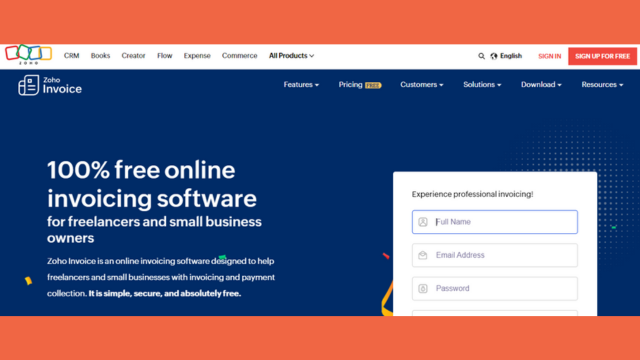
Small companies and independent contractors can use the online invoicing and billing system called Zoho Invoice. It provides several tools to speed up the billing process, monitor spending, control payments, and keep track of financial activities.
Key features of Zoho Invoice
Here are some of Zoho Invoice’s key characteristics:
Proficient billing
The customized invoice templates from Zoho Invoice allow you to include your logo, business information, and payment terms. You can quickly make invoices with a professional appearance.
Monitoring of time
With the program’s aid, you can effortlessly turn your time on various tasks or initiatives into invoices. This function is especially beneficial for independent contractors or companies that charge by the hour.
Online transactions
With the help of Zoho Invoice’s integrations with well-known payment processors, your clients can conveniently pay their invoices online. As a result, there is a lesser need for human follow-ups, and payments are received more quickly and conveniently.
Expense management
You can keep track of your company costs by simply entering Zoho Invoice. With the help of this tool, you can store receipts, link them to specific projects or clients, and correctly track your spending.
Repeating bills
You may create automatic invoices in Zoho Invoice for periodic billing periods. By automating the billing procedure, this tool helps you save time and effort.
Support for several currencies
If you operate with clients from other countries, Zoho Invoice’s support for several currencies will make it simpler for you to invoice them in their chosen currency. This feature makes international transactions more accessible and eliminates the necessity for currency conversions.
Pros:
- Simple to use user interface
- Adjustable invoice templates
- Time tracking and project management tools
- Partnerships with well-known payment processors
- Scheduled recurring invoicing
- Cost monitoring and evaluation tools
Cons:
- Limited customizability
- Restricted advanced capabilities in comparison to certain rivals
- The potential learning curve for novice users
- Variable response times from support personnel
FreshBooks

Popular cloud-based accounting software for small companies and independent contractors is called FreshBooks. It provides various features that may be used to simplify money administration and boost productivity.
Key features of FreshBooks
Following are some of FreshBooks’ main attributes:
Invoicing
FreshBooks streamlines the invoicing process by enabling users to produce invoices with a professional appearance and deliver them electronically to clients. It has options for customization, automated billing, and support for taking payments online.
Spending Monitoring
Users may conveniently keep track of their company spending by photographing receipts with their mobile devices, categorizing them, and associating them with appropriate tasks or clients. This function facilitates completing taxes and aids in precise record-keeping.
Project Administration
With FreshBooks, users can manage their tasks effectively. They may use it to build projects, assign tasks to team members, set deadlines, and monitor development. This function promotes better teamwork and guarantees the timely completion of tasks.
Analytics and Reporting
FreshBooks offers relevant reports and analytics to assist users in understanding their organization’s financial condition. Users may make decisions based on data by using the information it provides on invoicing, spending, profitability, and tax summary.
Customer Portal
Businesses may provide customers with a personalized environment using FreshBooks’ client portal function. To increase transparency and customer satisfaction, clients may examine and pay bills, monitor project status, and contact the company.
Mobile applications
Users can manage their money while on the road thanks to FreshBooks’ mobile apps for iOS and Android smartphones. From their mobile devices, users may make invoices, keep track of spending, and interact with clients.
Pros
- An intuitive interface
- Streamlined invoicing and payment processing
- Effective expenditure tracking
- Efficiency automation
- Potent analytics and statistical analysis
- And mobile compatibility.
Cons
- Limited capacity to scale for larger firms
- Absence of complex accounting functions
- Expensive in comparison to certain rivals
- Limited ability to customize invoice templates
Wave
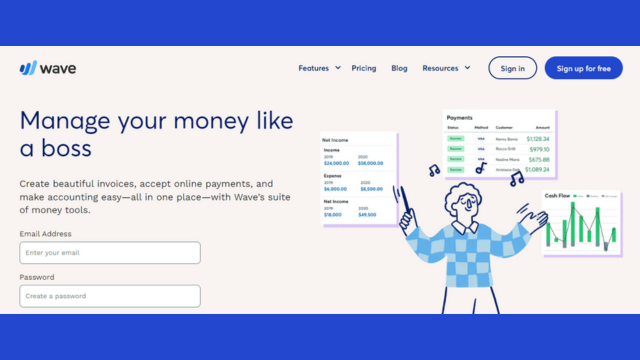
For small enterprises, freelancers, and entrepreneurs, Wave is free cloud-based accounting software. A variety of options are available to make financial management more effortless.
Key features of Wave
Here are some of Wave’s main characteristics:
Bookkeeping and Accounting
In addition to monitoring revenue and spending, balancing bank accounts, and creating financial statements, including balance sheets and profit and loss reports, Wave also offers basic accounting features. It aids users in maintaining organization and gaining knowledge about the financial health of their companies.
Payroll
Users may conduct payroll, determine and withhold taxes, create pay stubs, and manage employee payments using Wave’s integrated payroll services (available in a few countries). This function streamlines payroll administration and guarantees adherence to tax laws.
Coordination and Permits
By giving their team and accountant access to certain features or reports, Wave users may work with their team or accountant. This function improves communication and facilitates easy financial administration.
Bank Relationships
With a secure connection, Wave may import transactions automatically from customer’s bank and credit card accounts. Data entry is sped considerably thanks to this function, which guarantees correct financial records.
Mobile Apps
Wave provides mobile apps that let consumers manage their money while on the move for iOS and Android smartphones. Users may produce invoices, take receipts, and keep track of their spending from their mobile devices.
Pros
- Basic financial and accounting functionality
- A user-friendly interface
- Invoicing and payment processing abilities
- Expense tracking and receipt scanning,
- And payroll administration (available in some countries) is all aspects of cheap accountancy software.
Cons
- Limited connectors compared to certain rivals
- Lack of comprehensive accounting functions
- Limited scalability for more giant enterprises
- Slow customer care response times
Xero
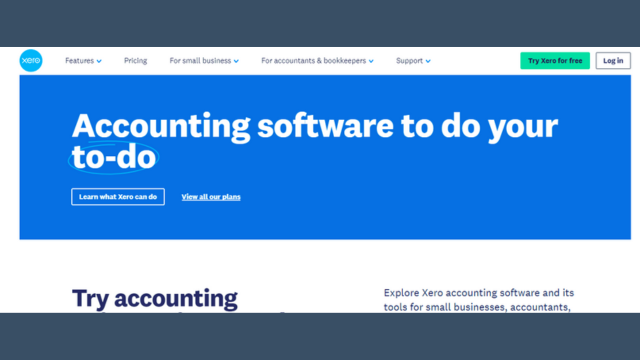
Xero is cloud-based accounting software that caters to small and medium-sized businesses. It provides a full range of functions to simplify money administration.
Key features of Xero
Here are some of Xero’s salient attributes:
Invoicing
Xero streamlines invoicing by enabling customers to make expert invoices, alter templates, establish recurring invoices, and accept online payments. Additionally, it offers in-the-moment information on the status of the invoices and reminders for unpaid invoices.
Bank Reconciliation
Xero offers smooth bank reconciliation by automatically integrating bank transactions and connecting them to corresponding entries in the accounting system. Users may save time and have accurate financial records thanks to this functionality.
Inventory Control
Users may track and manage their inventory levels, make purchase orders, and produce reports to examine stock movements and profitability using Xero’s basic inventory management capabilities.
Analytics and Reporting
Gain and loss statements, balance sheets, cash flow statements, and other financial reports are all available through Xero. Users may track key performance metrics, analyze financial data, and discover the financial condition of their company.
Support for Multiple Currency
Xero is appropriate for firms that operate worldwide since it supports many currencies. Users may produce reports in the selected currency, automatically convert currency values, and invoice and monitor costs in many currencies.
Coordination and Permits
Because it offers flexible access controls and permissions, Xero allows team members and accountants to collaborate. Users may provide various access levels to people, enabling them to collaborate while ensuring data security.
Pros
- Sophisticated analysis and reporting
- Simple to use interface
- Powerful invoicing and payment processing capabilities
- Effortless bank reconciliation
- Detailed accounting features
Cons
- Minimal customizability for some functions
- Higher cost compared to other rivals
- Learning curve for advanced capabilities Unreliable customer support
Square
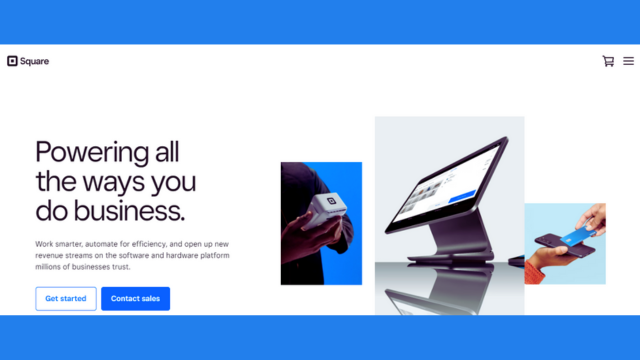
Square is a flexible point-of-sale (POS) system and payment processing platform that provides several services for companies of various sizes.
Key features of square
These are some of Square’s main characteristics:
Making payments
Credit and debit cards, Smartphone payments (like Apple Pay and Google Pay), and contactless purchases are all made possible by Square for companies. It offers trustworthy and safe payment processing solutions.
Online Store Integration
Tools for setting up and managing online storefronts are available from Online Store Integration Square. Within the Square platform, users may create e-commerce websites, list their items, take online payments, and keep track of their inventory.
Inventory Management
Businesses may check stock levels, manage product variants, issue low-stock alerts, and produce reports using the inventory management features in Inventory Management Square for improved inventory control and planning.
Analytics and Reporting
Square offers thorough analytics and insights on sales, stock, and consumer behavior. Users may learn about the success of their company, see patterns, and make data-driven choices.
Arrangement of Appointments
For service-based enterprises, Square provides functionality for booking appointments. Users may manage appointments, remind clients of work, and take online reservations, simplifying scheduling and lowering no-show rates.
Customer relationship management (CRM)
The Square contains fundamental CRM features to assist organizations in keeping track of client data such as preferences and past purchases. It facilitates the development of client connections and the execution of tailored marketing initiatives.
Pros
- Flexible choices for payment processing
- Complete point-of-sale (POS) software
- Simple online shop connection
- Effective inventory management features, thorough reporting, and analytics.
- Making appointments for service-centered enterprises
Cons
- Increased transaction costs for specific payment methods
- Fewer customization possibilities for certain services
- A learning process for complex features
- Variable response times from customer service
Invoice Ninja
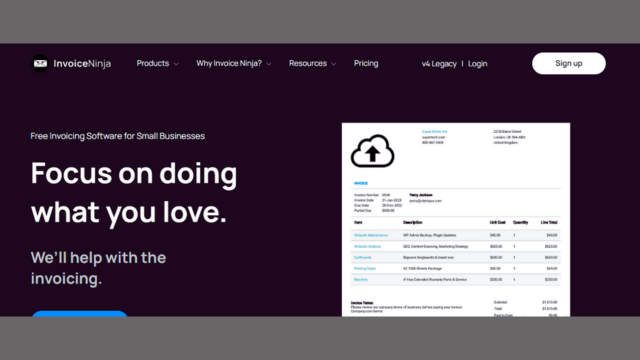
Open-source invoicing and billing software Invoice Ninja is made for freelancers, startups, and small enterprises. It provides several tools enabling users to produce and manage professional invoices effectively.
Key features of Invoice Ninja
Here are a few of Invoice Ninja’s salient characteristics:
Paying Online
Users may take online client payments through various gateways, including PayPal, Stripe, and Authorize.Net. To simplify the money-collecting process, Invoice Ninja works with these payment processors.
Time Monitoring
Users of Invoice Ninja may keep track of the billable hours they spend on projects using an integrated time-tracking tool. Users may quickly transform recorded time into invoices to ensure appropriate client invoicing.
Spending Monitoring
Within Invoice Ninja, users may keep track of and manage business spending. It enables users to classify costs, include receipts, and link them to some clients or projects. This function facilitates tax preparation and aids in the precise recording of expenses.
Client Portal
Invoice Ninja offers a client portal where customers may sign in to access their invoices, pay them, and contact the company. This function increases transparency and raises customer happiness.
Analytics and Reporting
Several reports and analytics are available from Invoice Ninja to give you information about your company’s finances. Users can produce reports on invoices, payments, costs, and taxes. Users may use this to keep tabs on the financial health of their company and make wise decisions.
Pros
- Free software with no in-advance costs
- An intuitive user interface for straightforward invoicing
- Help with payments made online through a variety of gateways
- Timers and expense-management tools
- A client portal for transparent interaction and payments processing
- Customization options for branding and templates.
Cons
- Limited integrations compared to certain rivals
- Advanced functions that can require technical expertise
- Mobile app functionality that might be enhanced
- Variable response times from customer care.
Bill.com
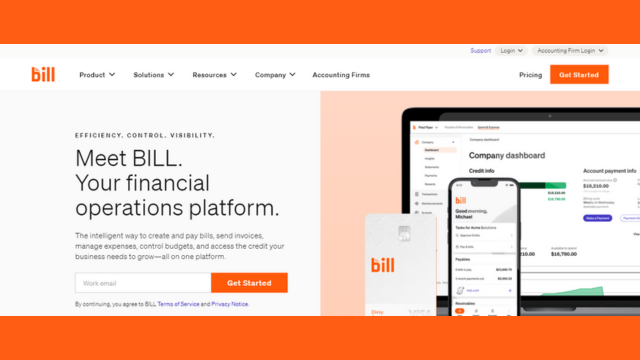
Bill.com is a platform for cloud-based financial management and payments created for companies and accountants. It provides several tools to simplify invoicing, bill payments, and financial procedures.
Key features of Bill.com
Here are some of Bill.com’s salient attributes:
Automatic Payment of Bills
With the help of Bill.com, consumers may receive, evaluate, authorize, and pay bills online, automating the accounts payable process. Users may plan payments, manage payment statuses, and set up automated workflows, which reduces manual error and saves time.
Document Control
Users of Bill.com may safely keep and manage crucial financial papers online. Users may organize and attach supporting documents, including contracts, vendor agreements, and invoices, to streamline record-keeping and promote cooperation.
Bank Integration and Sync
Bill.com’s integrations with several accounting programs and institutions enable customers to synchronize their financial data without hassle. Data entry is automated using this connection, guaranteeing correct and current financial records.
Collaborative Multi-User
Bill.com encourages teamwork between accountants and team members by offering safe access restrictions and permissions. Many users may collaborate on financial duties to improve productivity and communication, including managing invoices and approving bills.
Mobile applications
With the help of Bill.com’s mobile apps for iOS and Android devices, consumers can manage their finances while on the move. From their mobile devices, users may access crucial documents, examine and approve invoices, and monitor the progress of payments.
Pros
- Accounts payable and bill payment procedures are streamlined
- Invoicing and accounts receivable are managed effectively
- Banks and accounting software are seamlessly integrated.
- Workflows that may be customized and automated features
- Financial management mobile applications with audit trails and compliance tools
Cons
- Limited customization possibilities for invoice templates
- The learning curve for advanced features and setup are further drawbacks
- Some customers may also occasionally face synchronization difficulties with accounting software.
KashFlow
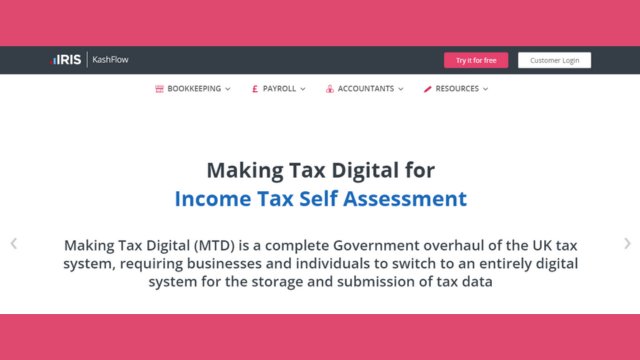
KashFlow is accounting software aimed at micro businesses and independent contractors. It provides several features to make financial management more accessible and accounting procedures more efficient.
Key features of KashFlow
Here are some of KashFlow’s main attributes.
Spending Monitoring
In KashFlow, users can effortlessly track and group company spending. It enables users to submit receipts, log spending, and link those expenditures to specific projects or clients. This function facilitates tax preparation and aids in the precise recording of expenses.
Reconciling the Banks
KashFlow provides features for bank reconciliation to guarantee those users’ financial records and bank statements agree. Users may easily reconcile accounts by importing bank transactions, matching them with the relevant entries, etc.
Accounting Reporting
KashFlow provides a range of financial reports, like cash reports, balance sheets, and profit and loss statements. These reports give consumers insightful information about their company’s financial performance and aid decision-making.
Payroll Integration
By integrating with well-known payroll providers, KashFlow makes it simpler for businesses to handle employee payroll and adhere to payroll requirements. Users may manage PAYE (Pay As You Earn) computations, produce pay slips, and import payroll data.
Project Monitoring
Project tracking features in KashFlow enable users to allocate earnings and costs to specific projects. Businesses may use this tool to monitor project profitability, track expenses, and guarantee correct billing.
Mobile Apps
KashFlow provides mobile apps for iOS and Android smartphones that let users access their financial information, make and send invoices, and keep track of their spending while they’re on the move.
Pros
- User-friendly interface for simple accounting administration
- Detailed invoicing and cost-monitoring tools
- Integration with well-liked CRM and payroll programs
- Tools for managing and complying with VAT
- Mobile applications for easy access
- Best Billing Software For Small Business
Cons
- Limited integrations in comparison to certain rivals
- Variable response times from customer service
- Higher pricing for specific business sizes
- Specific complex capabilities may need additional training or help
Harvest
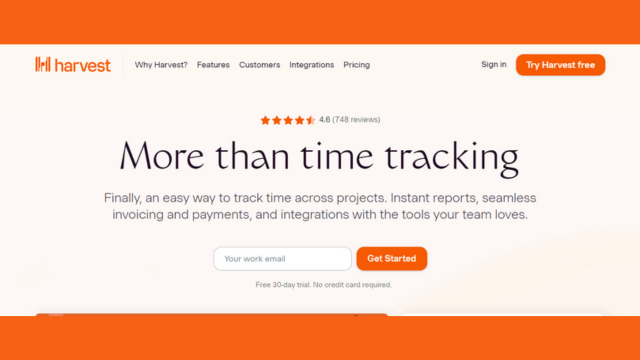
Harvest is a project management and time-tracking tool for companies and independent contractors. It provides several tools to aid users in managing projects, keeping track of time, and streamlining workflow.
Key features of Harvest
Here are some of Harvest’s main attributes for Billing Software For Small Business:
Time Monitoring
Harvest users may track the time spent on tasks, projects, and customers. It has alternatives for manual time input, easy timers, and interaction with well-liked project management programs. Users may allocate time entries to specific projects or clients, categorize them, and add remarks.
Users of Expense
Tracking Harvest may keep track of and classify company spending. Users may record costs, submit receipts, and link them to clients or projects. This function makes managing expenses easier and aids in correct billing and reimbursement.
Analytics and Reporting
Harvest offers in-depth statistics and insights on team utilization, project performance, and time monitoring. Users may learn more about resource allocation, project profitability, and team member productivity. Businesses may increase productivity and make data-driven choices using this data.
Team Collaboration
Harvest has collaboration tools that make it easier for team members to communicate and work together. Users may collaborate on assignments, offer comments, and share project updates, which improves team cooperation and productivity.
Mobile applications
Harvest provides mobile apps for iOS and Android smartphones that let customers manage projects, log time, and read reports while on the road. It enables users to continue being productive and managing their work even when not using their laptops.
Time and Expense
Approval: Harvest has tools that allow supervisors to check and approve the time and expense reports submitted by team members. It promotes accuracy and responsibility in project management and billing.
Pros
- Simple time tracking and project management interface
- Powerful reporting and analytics features;
- Seamless interaction with well-known corporate tools
- Mobile applications for time tracking and project management while on the move.
- Collaborative tools for team communication and coordination
- Effective invoicing and cost monitoring capabilities.
Cons
- Limited ability to customize reports and invoices
- The learning curve for specific complex capabilities
- Potentially more expensive than other alternatives.
- Sometimes synchronizing problems with integrations from external parties
Buying Guide for Best Billing Software for Small Business
When selecting the best billing software for your small business, it’s essential to consider several factors to ensure it meets your specific requirements. Here’s a buying guide to help you make an informed decision:
Possibilities and functionality
Determine your company’s requirements and rank the features you need. Consider fundamental features like billing, handling payments, monitoring expenses, repeating billing, and statistics. To support the expansion of your organization, look for software that gives flexibility, customizing possibilities, and durability.
Effortless Use
Choose billing software with an easy-to-use UI and simple navigation. With more training, learning and using it should be simple. Think about applications that include a simple interface, a logical process, and well-organized menus.
Capabilities for Integration
Consider how well the program integrates with your current setup. Search for connection possibilities with your CRM tools, accounting software, payment gateways, and other company systems. Your process will be streamlined, and duplicate data entering will be minimized.
Time-saving and automated features
Select software that performs repetitive operations like billing cycles, payment reminders, and invoice production automatically. Automation speeds up processes and lowers the possibility of mistakes. Look for features like regular payment reminders, bulk invoicing, and client information auto-population.
Choices for Customization
Use the software to add your branding, logos, and colors to invoices. It helps maintain brand consistency and increase professionalism to customize invoices to match your company’s visual identity.
Protection of Data and Security
Make sure data security is a top priority for the billing program. Data encryption, frequent backups, and secure payment methods are all desirable characteristics. Furthermore, confirm that the program complies with industry norms like PCI-DSS (Payment Card Industry Data Security Standard).
Customer Service
Excellent customer service is essential if you run into problems or have inquiries. Verify whether the software vendor for billing offers helpful customer service methods like phone, email, or live chat. Investigating internet tools like knowledge bases, FAQs, and user groups is also beneficial.
Pricing Framework
Take into account both your spending limit and the software’s cost. Other software alternatives demand a membership or one-time purchase, while some provide free plans or trial periods. Consider any extra charges for supplemental features or user licenses to compare price structures.
Reviews from users and reputation
To understand other small companies’ situations:
1. Read their client comments and evaluations.
2. Check reviews for commentary on program usability, customer service, and general satisfaction.
3. Evaluate the application provider’s standing and performance record.
Future Growth and Scalability
Consider your company’s future demands and potential expansion. As your company grows, pick billing software to handle rising transactions and support more users, clients, and features.
By taking into account these elements, you may choose the finest billing software that satisfies the needs of your small business, improves productivity, and streamlines your invoicing and financial management procedures.
Frequently Asked Questions
Q: Which billing program is ideal for small businesses?
A: Small businesses have access to several excellent billing software alternatives. FreshBooks, QuickBooks Online, Zoho Invoice, Wave, and Xero, are a few of the top options.
Q: What elements must I consider when picking billing software for my small business?
A: When choosing billing software, consider aspects including usability, cost, functionality (such as invoicing, expenditure tracking, and reporting), integration abilities, customer support, scalability, and your company’s particular requirements.
Q: Which is more suitable for small firms, desktop or cloud-based billing software?
A: Small firms frequently select cloud-based billing software because of its accessibility, automated upgrades, and data backup features. You may use it from any location with an internet connection to see your billing information. Desktop software often only works on a single device and requires installation.
Q: Will billing software assist me in managing my finances and tracking expenses?
A: Many billing software programs do have capabilities for tracking expenses. You may manage your financial records more effectively by using them to track revenues, document, and categories costs, and produce expenditure reports.
Q: Are billing programs compatible with other business tools?
A: Most billing software alternatives can integrate with business tools, including project management platforms, CRM systems, accounting software, and payment gateways. Verify the integration possibilities provided by the program you are thinking about.
Q: Do small firms have access to any free billing software options?
A: To meet the needs of small firms, several billing software suppliers provide free plans or versions with fewer features. Examples include Zoho Invoice, a free program for up to five users, and Wave, a free edition.
Q: How safe is small business billing software?
A: Reputable billing software companies put a high priority on system security and use safeguards, including data encryption, secure servers, and routine data backups. Ensure a program has the necessary security measures before picking it.
Q: Can billing software provide bills with a professional appearance?
A: Yes, you can make invoices that appear professional using the configurable invoice templates offered by most billing software alternatives. Frequently, you may put the payment conditions and contact information in addition to the logo of your business, custom colors, and fonts.
Q: Can billing software handle automated payment reminders and recurring billing?
A: Recurring billing functions are available in many billing software programs. You may arrange automated payment reminders to inform clients of future or past-due payments and set up automatic invoices to be delivered regularly.
Q: How can billing software assist me in adhering to tax laws?
A: Billing software frequently offers tax-related features like automatic tax computations, tax reporting, and the flexibility to use the proper tax rates based on your region. Some software even connects with accounting systems to make preparing taxes more efficient.
Q: Is billing software supported by training or customer service?
A: To assist you in getting started, most billing software suppliers give training materials, including tutorials, user manuals, and information bases. You can often access customer care channels like email, live chat, or phone help for any problems or inquiries.
Q: Can billing software assist me in producing financial reports?
A: In most cases, billing software has reporting options that let you create financial data, including aging reports, revenue summaries, and reports on sales. These reports can provide insightful information on your company’s financial health.
Q: What billing software should I use for my small business?
A: The first step in selecting the best billing software is determining your unique needs and goals. Budgeting, necessary characteristics, scalability, integration potential, and convenience of use are a few things to consider. Utilize the free trials or demonstrations software vendors give to evaluate the program before choosing.
Q: What essential characteristics should billing software for small enterprises have?
A: Important features to consider are customer management tools, customized invoice blueprints, processing of payments, expenditure tracking, reporting and analytics, tax computations, and periodic billing.
Q: How much does billing software typically cost tiny businesses?
A: The price of billing software varies based on your company’s size, the supplier, and the Services offered. While some software has a fixed monthly or yearly charge, others may have tiered pricing options dependent on the volume of customers or bills. It’s crucial to assess your financial situation and select a solution that fits inside it.
Q: Does billing software manage transactions involving several currencies and different countries?
A: You may invoice in numerous currencies and accept payments in various languages thanks to the multi-currency capability of many billing software alternatives. This capability can benefit businesses operating abroad or with clients in different nations.
Q: Does billing software offer choices for many payment options?
A: In many cases, the billing application accepts several payment options, such as bank transfers, credit cards, debit cards, and other payment methods like PayPal. Verify that the program is compatible with the payment gateways you want or need.
Q: Can billing software assist me in keeping track of unpaid invoices and sending collection reminders?
A: Most billing software programs provide tools for keeping track of unpaid invoices and reminding clients to make payments automatically. By doing this, you can better manage your cash flow and keep an eye on your accounts receivable.
Q: Can software for billing provide reports on finances like earnings and loss statements?
A: Reporting features, such as financial statements, balance sheets, and cash flow statements, are available in many billing software alternatives. These reports provide insightful information on your company’s efficiency and financial condition.
Q: Can billing software accommodate recurring income and subscription-based billing?
A: Billing software frequently has functions just for subscription service companies. You can manage subscription plans, set up regular billing cycles, and immediately create invoices for repeat clients.
Conclusion
In conclusion, the availability of billing software created especially for small enterprises has tremendously aided these organizations’ financial administration. To facilitate the billing procedure, small businesses’ best billing software should automate several operations, including invoice production, transaction tracking, and financial statement generation.
With the development of technology, several Billing Software For Small Business options are available to startups that streamline invoicing, boost productivity, and improve organization.
QuickBooks, FreshBooks, and Zoho Invoice are great software for small businesses with distinctive features. Numerous features are available with QuickBooks, including invoicing, expenditure tracking, financial reporting, and interaction with other accounting software. FreshBooks offers a user-friendly interface and functions like time tracking, cost management, client management, and billing.
A complete software solution with features like a client portal, time tracking, expenditure management, recurring billing, and online invoicing, Zoho Invoice was created especially for startups.
Financial management has significantly improved due to small firms’ access to effective billing software. To select the billing software that best meets their needs, small businesses should carefully weigh the capabilities and advantages of the available options. Companies may improve efficiency, streamline the billing process, and help their organization succeed.
In closing, small firms have access to several well-liked billing software alternatives. Among the leading options are QuickBooks, Zoho Invoice, FreshBooks, Wave, Xero, Square, Invoice Ninja, Bill.com, KashFlow, and Harvest. These software packages provide numerous services, including billing, cost management, financial reporting, and payment processing.
It’s crucial to consider aspects like functionality, convenience of use, integration potential, time-saving capabilities, customization possibilities, data security, customer support, cost, user reviews, and scalability when selecting the finest billing software for small business. By assessing these factors, you may choose billing software that meets your company’s needs, improves productivity, and simplifies invoicing and financial management procedures.
Next Article > Best Business Process Management Tools

